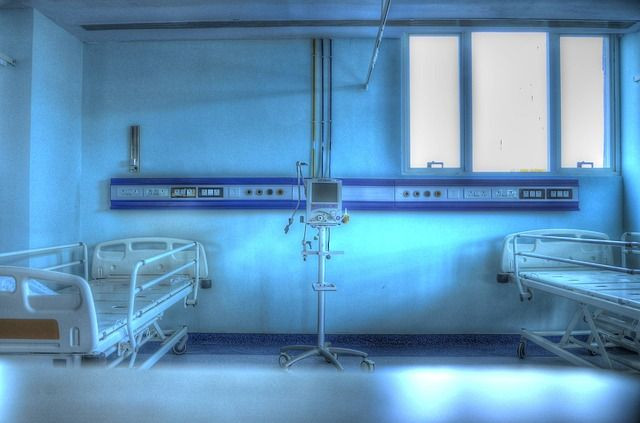Uninsured And Medicaid Cancer Patients Receive Worse Treatment, Die Sooner

A pair of new studies published in the journal Cancer reaffirm previous findings that the income and wealth gap often leads to a cancer treatment gap.
Researchers examined the medical records of patients diagnosed with either testicular or brain cancer. Both studies found that uninsured and Medicaid patients — overwhelmingly likely to have low income and wealth — had larger tumors at the time of diagnosis, received poorer treatment, and died sooner than patients with private insurance. In particular, early stage testicular cancer patients on Medicaid or who were uninsured were less likely to have their lymph nodes removed, a standard treatment that can prevent the cancer from spreading further; advanced stage uninsured patients whose cancers had metastasized were also less likely to receive radiation therapy.
"Although testis cancer is curable with chemotherapy, this study supports the notion that lack of insurance may lead to delays in diagnosis and more advanced and less curable disease," said senior author of the testicular cancer study Dr. Christopher Sweeney, an oncologist at Boston’s Dana-Farber Cancer Institute, in a statement. "Our findings support the belief that early diagnosis and management is key, and removal of barriers to access to health care should be implemented."
The second study, led by Dr. Judy Huang of the Johns Hopkins University School of Medicine in Baltimore, examined 13,665 patients diagnosed with glioblastoma, which is the most common form of brain tumor in adults, between 2007 and 2012. In addition to the above findings, they found that only non-Medicaid insured patients had improved survival rates over the course of the 5-year period.
Huang said, "This suggests that while improvements in medical therapy have resulted in longer survival, this benefit is less likely to be accessible to Medicaid-insured or uninsured patients."
These studies are only the latest to examine the connection between insurance coverage, socioeconomic status, and cancer treatment. A similar study, published earlier in August 2016 in the journal Cancer, found the same poor health outcomes among Medicaid and uninsured patients with head and neck cancer compared to patients with private or other forms of government insurance, such as Medicare. Some studies have found that socioeconomic status may largely, though not entirely, account for why racial and ethnic groups like blacks tend to survive cancer less often. Meanwhile, others have shown that black patients can fare just as well as white patients so long as they received comparable medical treatment.
An accompanying editorial by Dr. Michael Halpern, an associate professor in the Department of Health Services Administration and Policy at Temple University, highlighted the importance of providing that comprehensive cancer care, regardless of a patient’s income level or insurance status, challenging as it may be.
Halpern concluded: “[A]dequate health care should be considered an inalienable human right, and greater emphasis is needed on realizing strategies that will make this happen throughout the continuum of cancer care."
Sources:
Markt S, Lago-Hernandez C, Miller R, et al. Insurance Status and Disparities in Disease Presentation, Treatment and Outcomes in Men with Germ Cell Tumors. Cancer. 2016.
Rong X, Yang W, Garzon-Muvdi T, et al. Influence of Insurance Status on Survival of Adults with Glioblastoma (GBM): A Population Based Study. Cancer. 2016.



























